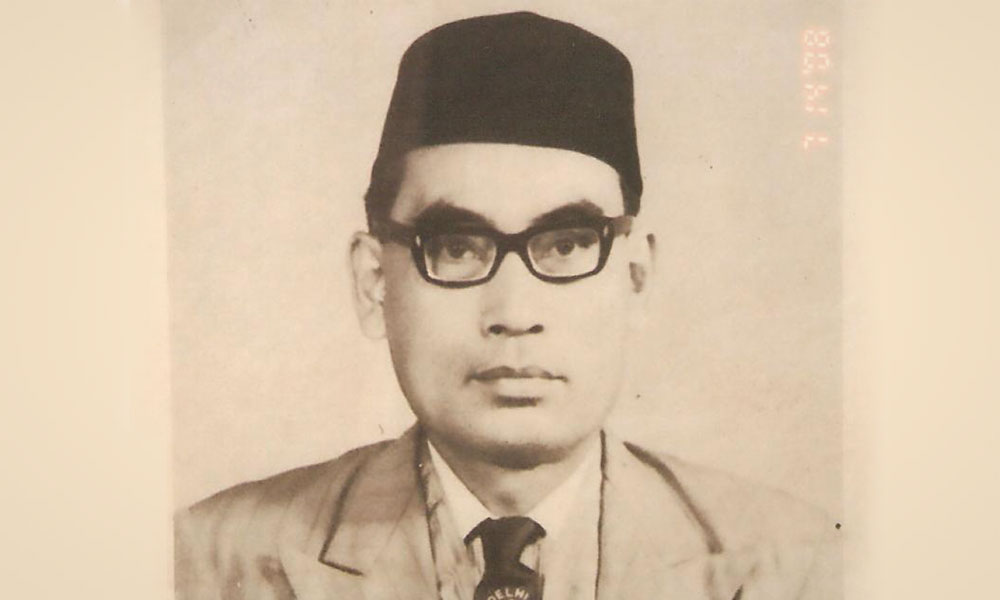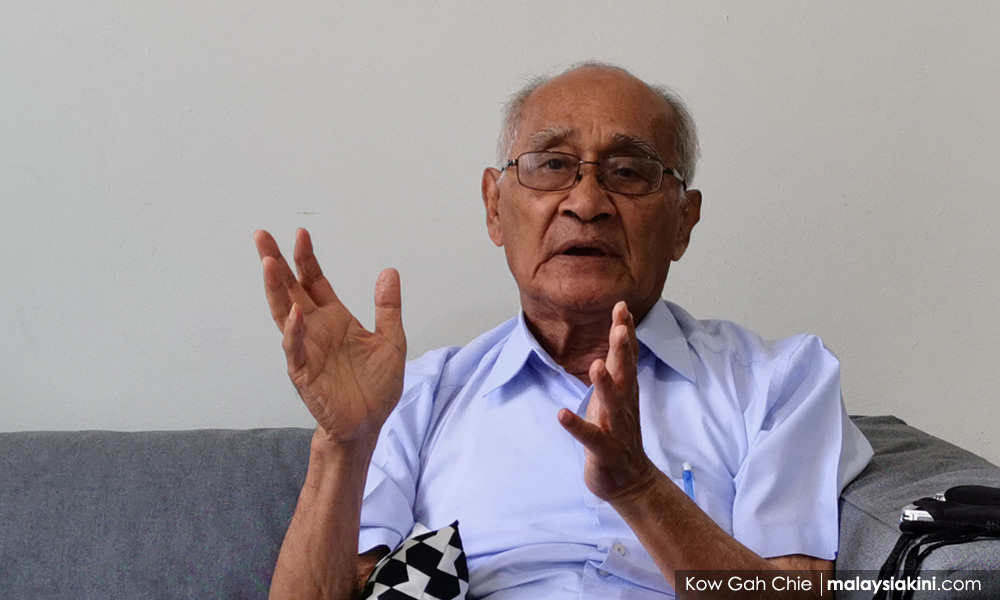Recently, Umno adviser Tengku Razaleigh Hamzah proposed that the “Malay” concept of an inclusive citizenship, purportedy originated by onetime PAS leader Dr Burhanuddin al-Helmy, be revived as the matrix for building a united nation.
In all probability, Razaleigh was referring to one point of the People's Constitutional Proposals that were formulated in 1947 by Putera-AMCJA.
Putera-AMCJA was a coalition of left-wing Malay parties (Pusat Tenaga Rakyat or Putera for short) headed by Burhanuddin that was allied to a cluster of largely non-Malay political groups (All Malaya Council for Joint Action, AMCJA), headed by MCA leader Tan Cheng Lock.
After several discussions among this cohort in the early part of 1947, they came up with the People's Constitutional Proposals (PCP) in August that year.
PCP was a 10-point manifesto Putera-AMCJA commended to the colonial authorities and the general public for consideration.
After the rejection of the Malayan Union proposal in 1946 by conservative Malay groups marshalled by Umno, the British colonial authorities invited a select group of political representatives for discussions on the shape of a Malayan political future.
They left out a large swath of representative groups, mainly left-wing, from this circle.
In response, the left-wingers, both from Malay and non-Malay groups including trade unions, banded together and invited centrists like the MCA and MIC to join in talks on how to shape a Malayan political future leading to independence.
This makeshift alliance was called Putera-AMCJA. The outcome of their talkfest in Kuala Lumpur between April and July 1947 was the People's Constitutional Proposals.

Point 9 in the manifesto proposed that “Melayu” (Malay) be the definition of any citizenship or nationality of the people of Malaya and Singapore who avowed undivided loyalty to the Malayan nation and accepted Malay as the national language.
Razaleigh's recent revival of this concept of citizenship came in for criticism as being outdated and inherently sectarian.
This was not how the proposal was perceived when it was formulated in 1947.
According to Dr Syed Husin Ali, former senator and deputy president of PKR, who now at 84 years of age, is probably the last surviving link to the leadership cohort that formulated the PCP, there was nothing sectarian about the designation of “Melayu” as the concept of citizenship in Point 9 of the PCP.
On the 70th anniversary of the formulation of the PCP in 2017, Syed Husin was the lead contributor to a slender volume of essays on the subject, which in the perspective of the decades gone by, is seen as a seminal document in the (thwarted) evolution of a united citizenry.
He is well-positioned to comment on issues related to the PCP because of his acquaintance with several of the central figures who had figured in its formulation.
“First of all, it was not Buharnuddin who was the originator of that designation,” said Syed Husin, in an interview with this reporter on the subject of Razaleigh's regurgitation of the “Melayu” concept.
“It can't say precisely who was the originator except that I know the proposals were formulated by John Eber and William Kuok who locked themselves for a month in Singapore to work on the manifesto,” Syed Husin expatiated.
John Eber was a leader of the Malayan Democratic Union, a collection of independence and democracy-seeking activists in Singapore and Penang, while William Kuok, eldest brother of tycoon Robert Kuok, was a left-leaning political activist.
'Lost opportunity'
Syed Husin said the “Melayu” concept of citizenship in the PCP did not entail the sacrifice by the non-Malays of their rights to their culture, religion and mother tongue education.
“The concept was proposed to describe the citizenship of residents who avowed their loyalty to an independent Malayan nation,” he stressed.
“In fact,” Syed Husin emphasised, “the rights of the non-Malays to their culture, religion and mother tongue education were guaranteed by the PCP.”
Syed Husin said it was plausible that the journalist A Samad Ismail may have been the originator of the “Melayu” concept of citizenship, but “I'm fairly sure that Burhanuddin was not the originator.”

Samad was a precocious journalistic talent, in his early twenties in the immediate postwar years, who while plying his trade in Utusan Melayu, regarded then as the standard-bearer of Malay nationalism, was growingly influential, despite his youth, in Malay nationalist and literary circles in Singapore and Malaya.
“Samad could have been the originator of the 'Melayu' concept though I can't be too sure about this. But I'm pretty sure, it was not Burhanuddin,” claimed Syed Husin.
He is of the view that had the “Melayu” concept been accepted in 1947, “I believe it would have been an important factor, though not the sole one, in overcoming racial polarisation and promoting national integration.”
Syed Husin viewed the concept and its failure to gain traction as a “lost opportunity.”
“But we should also note that other factors – economic, political and socio-cultural – help to determine the strengthening and weakening of unity, ” he qualified.
Syed Husin urged Malaysian youths, who he noted were stirring to find new trails out of the deadlock besetting the national political scene, to read up on Malaysian history so that they would be better able to understand the nuances and the origin of terms such as “Melayu” in the PCP.
“Without knowledge of the past, they won't be able to understand the present and be able to prepare insight for the future, “ he said.
TERENCE NETTO has been a journalist for more than four decades. - Mkini
The views expressed here are those of the author/contributor and do not necessarily represent the views of MMKtT.




No comments:
Post a Comment
Note: Only a member of this blog may post a comment.